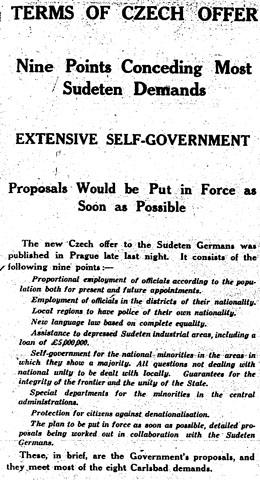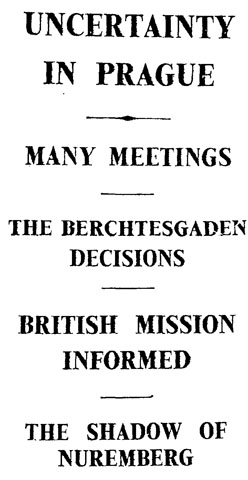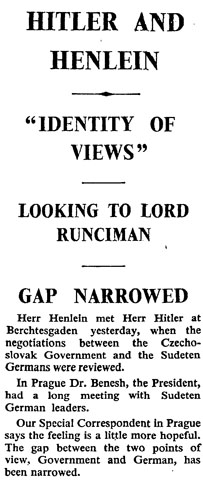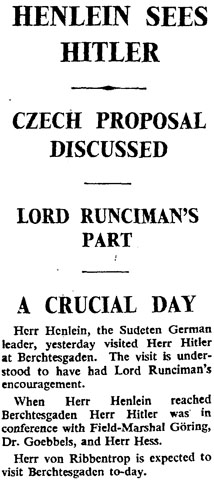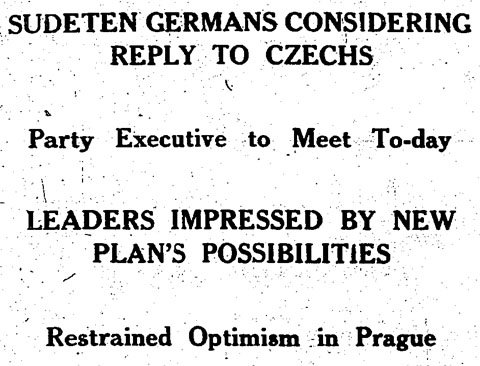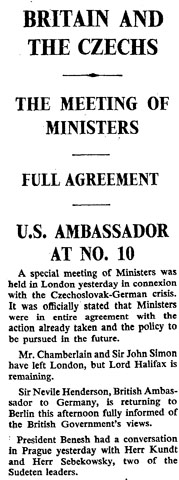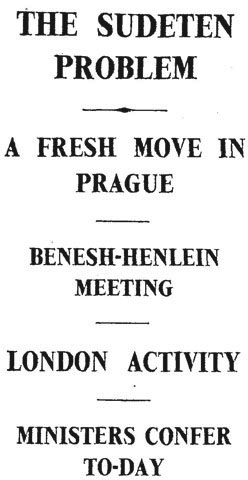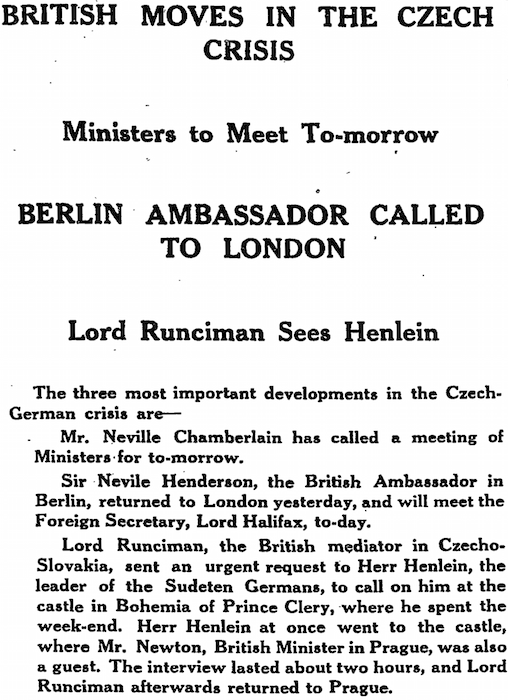Wednesday, 7 September 1938
At last, after all the endless reports of meetings to seemingly no end: actual details! As the above — from the Manchester Guardian (p. 9) — shows, the Czech autonomy proposals (first reported yesterday) were pretty generous. The Sudetens (and presumably other minorities) would get self-government, language equality, their own civil servants and police. I’m […]


